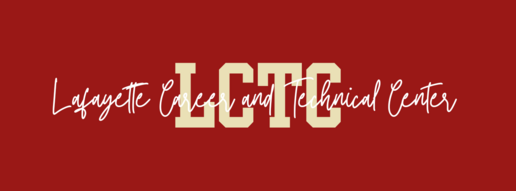Our Programs
Automotive Service Technology
Automotive Technology is a two-year instructional program that prepares students for entry-level employment in semi-skilled positions in the automotive repair and service industry, or for entry into post-secondary Automotive Technology programs. Automotive Technology consists of two one-year courses, each nine months in length. Each course must be taught in a minimum two class period block. The first-year course in the program includes instruction in the foundation skills related to safety, tool and equipment usage, measurement, basic automotive service, and brake and electrical system service. The second-year course provides students with foundation skills related to engine performance, drive trains, steering and suspension systems, and air conditioning/heating service.
Students who successfully complete the course will earn 2.0 Carnegie Units of elective coursework toward fulfilling graduation requirements.
Construction/Carpentry
Construction is an instructional program that orients the individual to the field of Building Trades. Study in this course allows an individual to prepare for employment or continued education in the occupations of Carpentry, Electrical Wiring, Masonry, or Plumbing. Included are units of study in Introduction and Orientation, Basic Safety, Basic Math, Introduction to Hand Tools, Introduction to Power Tools, Introduction to Blueprints, Introduction to Rigging, Introduction to Electrical Wiring, Introduction to Masonry, Introduction to Plumbing. 2.0 elective Carnegie Units, depending on time spent in the course.
Carpentry is a continuation of Construction, and allows the individual to prepare for employment or continued education in the occupations of Carpentry, Electrical Wiring, Masonry, or Plumbing. Included are units of study in Basic Safety (Review); Advanced Carpentry; Advanced Electrical Wiring; Advanced Masonry; and Advanced Plumbing. 2.0 elective Carnegie Units, depending on time spent in the course.
Health Science
The first year of the secondary health science skill program introduces the student to the health careers field, the basic health sciences, and basic skills in both laboratory and clinical. Upon completion of this first year introductory course, the student would be competent as a general basic health assistant. The student will be better able to make a choice of a health occupation that he/she plans to pursue. This course is taught for one year, and earns 2.0 elective Carnegie Units, with 1 of the 2 credits counting as a Science credit toward graduation, and the other 1 as an elective toward graduation.
The emphasis of the second year is primarily to expose students to advanced skills in the various health occupations. Students will apply these skills during clinical experience rotations in selected health care facilities. This course is taught for one year and earns 2.0 elective Carnegie Units as an elective toward graduation.
Health Sciences includes a minimum of 100 hours of clinical-type experience over the two years of coursework. Students who complete Allied Health may count earned credit as 1 science credit toward graduation requirements.
Students must have taken and passed Biology, Anatomy and Physiology, or Chemistry and a Science Teacher Referral Form will be required before interview and admission into the course.
Welding
The Welding program is designed as a cluster program for preparation to enter the metal working trades industry. Welding I includes an introduction to the basic metal working processes. Welding II requires that students choose one of two options (Advanced Welding Option or Advanced Machine Shop Option). The purpose of the course is to prepare students to continue study in a postsecondary metal trades program or to begin work at the entry level in a metal trades occupation, and provides the student with 2.0 elective Carnegie Units.
The Welding program is designed as a cluster program for preparation to enter the metal working trades industry. Welding I includes an introduction to the basic metal working processes. Welding II requires that students choose one of two options (Advanced Welding Option or Advanced Machine Shop Option). The purpose of the course is to prepare students to continue study in a postsecondary metal trades program or to begin work at the entry level in a metal trades occupation, and provides the student with 2.0 elective Carnegie Units.
Firefighter
The Basic Firefighter program is available to Lafayette High School juniors and seniors. The students will learn basic procedures and safety protocols for house fires, accidents, rescue scenes and much more! When students turn 19 they will have the opportunity to test out and become certified with the Mississippi State Fire Academy so they can start a career in firefighting.
HVAC-R
HVAC_R Emphasizes heating, ventilation, and air conditioning. Topics include employability skills, safety, construction math ,construction drawings, materials handling, copper and piping, soldering and brazing, and basic electricity. Year II of HVAC-R emphasizes heating, ventilation, and air conditioning topics that include employability skills, safety, carbon steel piping, introduction to cooling, introduction to heating, air distribution, leak detection evacuation recovery and charging alternating current, and basic electronics.
Utility Lineman
Our Utility Lineman program is a year long program that will be offered to seniors. This program will introduce students to the basics of becoming a lineman/ground-man in the power industry, building a foundation of skills including handling/identification of tools and preparation of the ground for line construction.
Work-Based Learning
Work-Based Learning provides the students the opportunity to take knowledge and skills learned in the pathway classroom and to apply and test that learning in the workplace. The CPE course will foster self-directed learning; strengthen the development of core academic skills through application in authentic situations; allow students to explore career options; enhance communication skills, leadership, and problem solving; and contribute to community economic development.
